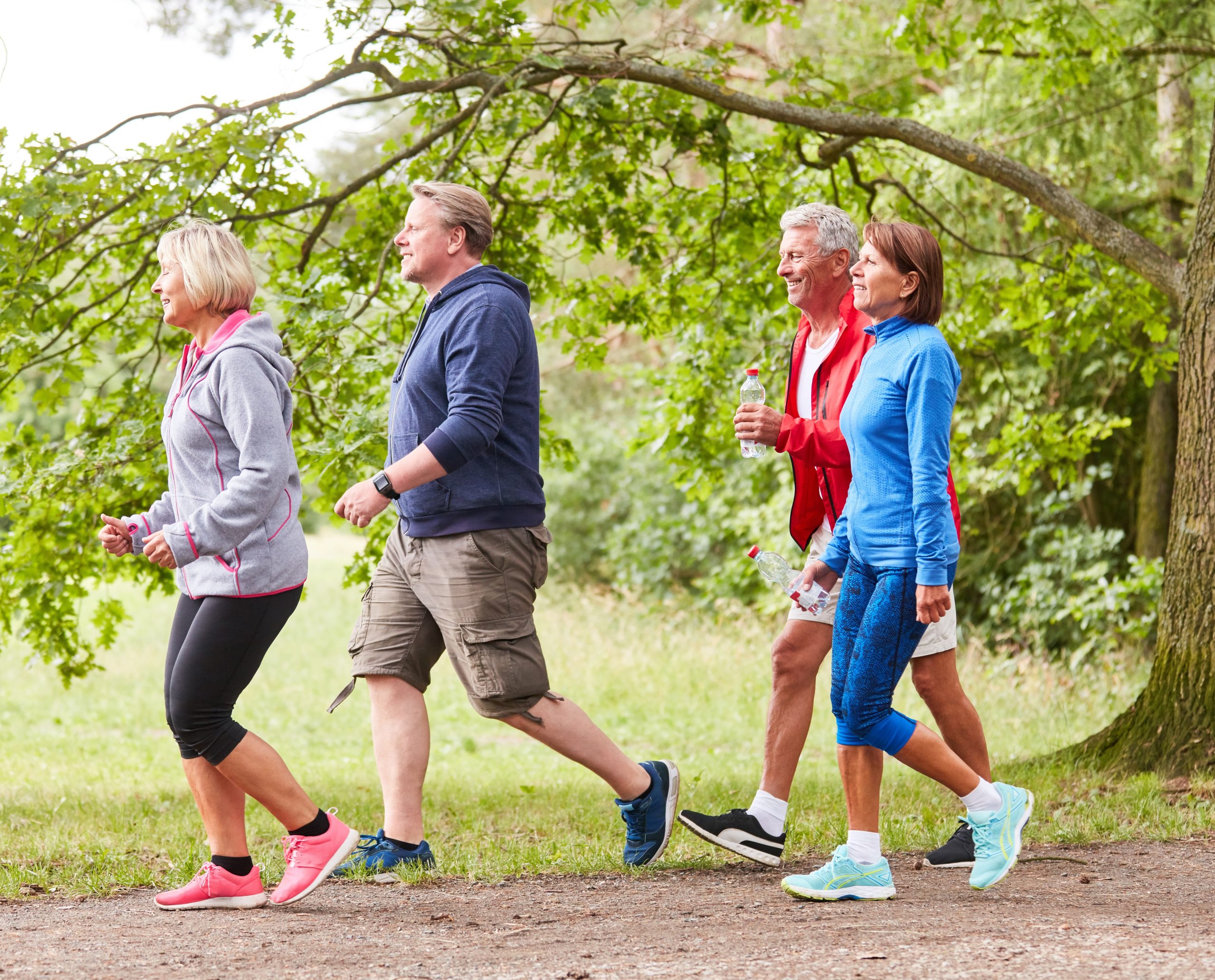People who know me well know I love my food, a lot, cycling and jogging a little less so but still high up there. However, injuring myself recently I haven’t had much opportunity to do much of the latter two and I am certainly doing too much involving the former. As a result, my weight has ballooned, rather quickly too, and those 36-inch trousers that I had gleefully put aside to invest in slimmer ones have had to be brough back into service.
Today is the day I get back to some form of exercise and I was doing a bit of research (it’s the swot in me) to see how I could ease myself back into the swing of things and ensure that the ligament damage I sustained, hopefully, did not recur. From now on it’s a diet of stretching and a mix of exercise, of which brisk walking will form a key part. According to the NHS a brisk walk means striding out at about 3 miles per hour, which isn’t the same a s a gentle stroll. Basically, it’s about getting your heart rate up. To help Public Health England have developed a useful app, called Active 10, which helps track how far you have walked as well as your speed. The app can be found on both Google Play as well as on Apple Apps.
Like most people I had heard the sage advice about walking 10,000 steps a day, though to be honest had always found by the end of the week, with a couple of long jogs included, I had averaged around 4 or 5,000, proclaiming that I had been too busy to do the remainder. However, what I hadn’t realised was that according to the research, I had been missing out. Walking is indeed good for the mind, body and soul and I have very much underrated its positive impact.
In a recent article we discussed how walking was good for the brain, citing a study by researchers at the University of Texas, Southwestern who had conducted a year-long study into the benefits of exercise amongst people between the ages of 55 to 80. What the researchers found was that although people were being asked to exercise at least 3 times a week, the average across the whole group ended up being 5 days. What was fascinating was that many of the ‘active’ group chose brisk walking and that the results showed material improvements around decision making and planning and their brain scans showed improved blood flow and oxygenation levels.
A regime of brisk walking can also help look after your physical health. Studies have shown it has positive affects by helping maintain muscle mass and strength, getting your heart rate up and improving your overall cardiovascular fitness, which in turn can reduce your likelihood of developing such conditions as type 2 diabetes, high blood pressure, heart and circulatory disease as well as strokes and even some cancers. It also ensures a good and regular dose of vitamin D which is essential for bone health, helps your immune system control infections and reduces inflammation. There’s even some thinking that it can be helpful in combating, dare I say it, Covid. Importantly for me (and my trousers) it also helps in maintaining a healthy weight and waistline. Hopefully, I’ll be dusting off those 34-inch trousers soon.
Once your specialist or doctor has given the go-ahead, brisk walking is a great way to recover from injury and ease yourself back into more intense forms of exercise such as running or cycling. Furthermore, when you are back in the exercise saddle, so to speak, it’s a great way to use your recovery days. Don’t do as I did and just sit at your desk and be a couch potato. That’s what got me into this mess in the first place. Even if you don’t want to cycle or run, then brisk walking will be just the ticket. You could even shake it up a bit and get involved in walking football. There are many clubs around the country and it’s really taking off in a big way with leagues and competitions starting up all the time. If you want to learn more then visit the Walking Football Association’s website included in the links.
Now for the soul, getting out for a walk in the great outdoors has been found to really help our overall mental health by improving your mood, boosting your energy levels, helping manage anxiety and depression and providing the bedrock for better sleeping.
So, a good brisk walk provides a veritable virtuous circle of benefits and I for one will make sure that I get at least my 10,000 steps in per day.
**Boldie Links:**
If you want to read more about the benefits of walking, the NHS guide can be found [**here**](https://www.nhs.uk/live-well/exercise/walking-for-health/)
